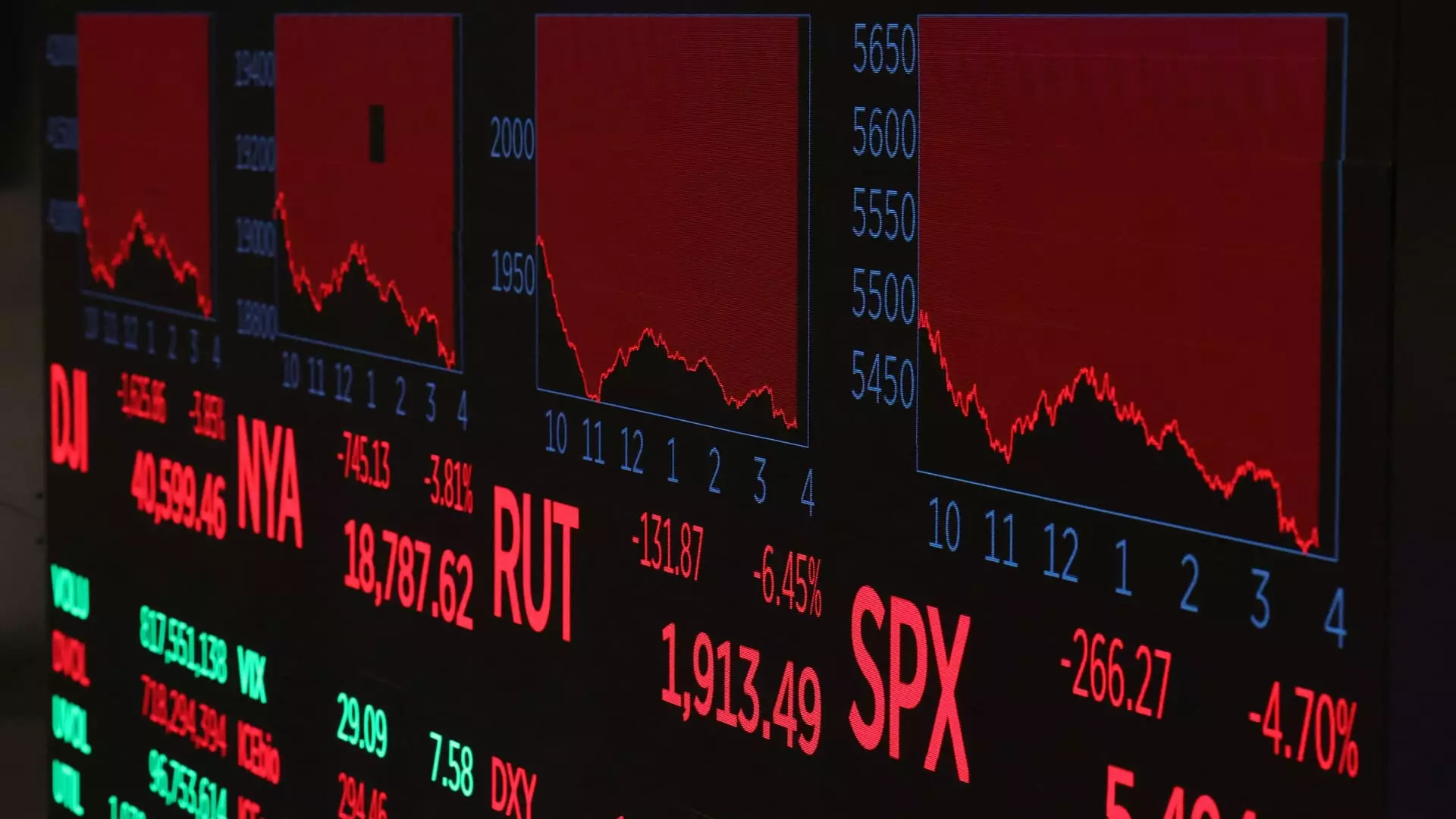In the tumultuous landscape of modern finance, marked by political upheaval and economic uncertainty, everyday investors are emerging as a surprisingly resilient force. Rather than retreating in fear, many retail traders are seizing opportunities that momentary market dips present. This trend can largely be attributed to a shift in the psychology of investing where the traditional wisdom of “buying the dip” is being embraced more aggressively than ever. In contrast to institutional investors, who often rely on comprehensive analysis and predictions, retail traders have harnessed a grassroots determination to navigate financial challenges. This approach has been most vividly illustrated in recent events surrounding President Trump’s tariff policy and its effects on Wall Street.
Tariff Terror: The Inevitable Repercussions
When President Trump unveiled his sweeping tariffs, financial markets shivered, sending shockwaves through the equities landscape. Concerns surged about rising inflation and diminished consumer spending as investors worried about the broader implications of these taxes on imports. This warranted a palpable fear in historic Wall Street establishments, leading many institutional analysts to slash their forecasts for major indices like the S&P 500, heightening fears of an economic downturn.
However, in stark contrast to institutional brokering’s panicked retreat, retail investors remained largely undeterred. This divergence provides an insightful case study into the evolving nature of today’s markets. Retail traders, often painted as naive participants in the realm of finance, exhibited remarkable acumen by viewing declining stock prices as discounts. The entrance of everyday investors into equity markets during this time was not just notable; it marked a departure from traditional investing norms indicative of new trends.
Welcome to the Era of the Retail Trader
The investment behaviors exhibited by retail investors in recent weeks highlight an emerging phenomenon fueled by both technology and a new generation of financially savvy individuals. As Rachel Hazit articulated her perspective in recent interviews, the market downturn was perceived not as a cause for alarm but as an opportunity to acquire stocks at lower price points. The surge in retail investment into established exchange-traded funds like Vanguard’s S&P 500 ETF demonstrates a shifting paradigm wherein individual investors are no longer passive observers but active participants.
In the wake of Trump’s tariff announcements, retail traders showcased a remarkable collective sentiment. Following an almost 5% decline in the S&P 500 on April 3, retail investors poured over $3 billion into U.S. equities—a record-breaking influx amid market uncertainty. Such buying sprees not only indicate strong conviction but also a revolutionary desire to reclaim agency in the investing landscape. Retail traders are asserting their presence despite the cacophony of institutional fears.
Market Dynamics: A Double-Edged Sword
Yet, amidst this surge of retail confidence lies a significant risk. The driving force of this “buying the dip” strategy brings with it the risk of increasing exposure to a volatile market. While savvy retail investors like Namaan Mian are capitalizing on market fluctuations by sticking to long-term strategies and embracing diversified funds, the present climate indicates a trend toward perilous speculation.
Indeed, the high levels seen in the CBOE Volatility Index, a barometer of market anxiety, suggest that a reckoning could lie ahead. Retail traders need to temper their enthusiasm with a healthy dose of caution. The notion that recent bullish moves can continue unabated could lead to disastrous outcomes if market fundamentals do not improve. The wily complexities of market dynamics underscore the importance of restraint—an unfamiliar yet vital lesson for many newer investors.
Empowered by Technology and Community
In addition to savvy investment acumen, there is a significant component tied to the proliferation of social media and investment-focused platforms that educate and empower retail investors. Influencers and financial educators, including figures like Tori Dunlap, are reshaping the investing landscape. By instilling confidence and encouraging a long-term mindset, they are transforming the narrative around market downturns. This democratization of information has contributed to newfound investment strategies wherein consumers focus on cultivating wealth through education and community.
Consequently, retail investors are not just a haphazard bunch but are rather a collective entity embodying resilience, learning, and a commitment to navigating economic challenges thoughtfully. This evolving dynamic poses an essential query for the financial landscape: are we witnessing the birth of a new era in investing that terms the traditional prestige of Wall Street obsolete?
Although the economic landscape continues to unfold, it is evident that retail investors are asserting their roles in markets previously dominated by institutional players. Their resolve to leverage downturns is emblematic of a broader shift in investment culture, underscoring an urgent transformation in how we perceive risk, opportunity, and ownership in the financial system. The narrative is still developing, and as we observe this ongoing evolution, the need for tempered caution and thoughtful strategy will remain paramount in navigating these uncharted waters.

